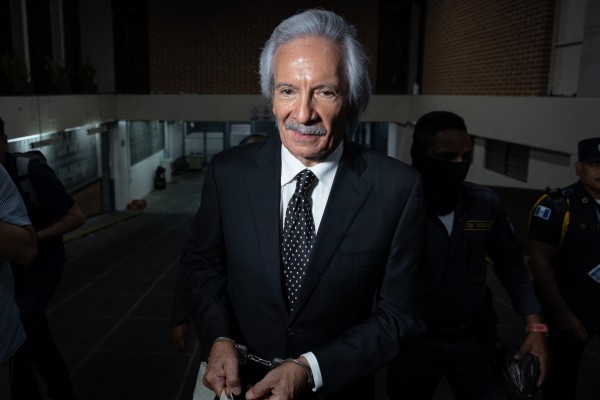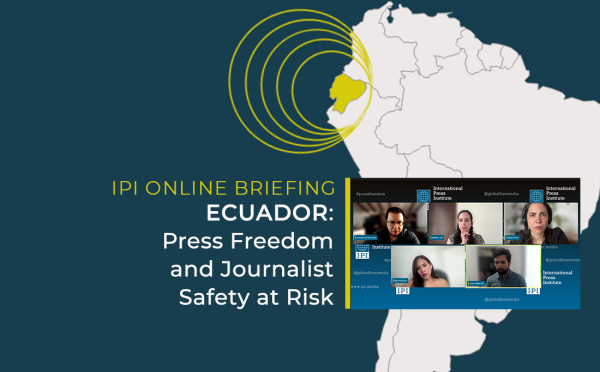The International Press Institute (IPI) today called on Brazilian authorities to immediately investigate yesterday’s murder of political reporter and blogger Décio Sá in Maranhão state.
Brazilian media reported this morning that Sá was gunned down shortly before midnight in a bar in San Luis, Maranhão’s capital. Witnesses said an unknown assailant entered the bar and shot the journalist six times from behind, with four bullets hitting the back of his head. The assailant fled the scene with an accomplice on a motorcycle.
Maranaho police superintendant Sebastião Uchoa told Notícia de Manhã that signs pointed to a targeted assassination. “It is too early to give out more information, but the cold, calculated manner in which the execution was carried out, the crime scene, and the clues we are gathering show that this was a hired killing,” he said.
He added: “Therefore … every individual or group reported on [by the victim] will be investigated.”
According to news reports, Sá was a political reporter for O Estado do Maranhão and had worked as a correspondent for A Folha de S. Paulo, Brazil’s largest newspaper by circulation. In addition, Sá was the author of the well-known Blog do Décio, reporting prolifically on municipal corruption and organised crime.
The Maranhão state government published an official statement on its website condemning “this barbaric and cruel act” and affirming it would “take all measures to ensure the capture of the two assassins”.
IPI Acting Deputy Director Anthony Mills said, “We send our deepest condolences to the family, friends, and colleagues of Mr. Sá. His brazen killing underscores the rising danger facing investigative journalists in Brazil, particularly those working along the country’s periphery. Federal and state authorities, in addition to local police, must launch a comprehensive investigation and bring those responsible to justice.”
Brazil’s journalists, Mills added, “cannot afford another example of impunity in cases of crimes against the media”. Sa’s murder comes just days after César Santos Magalhães, one of two police officers assigned to investigate the murder of Mato Grosso do Sul journalist Paulo Rocaro, was shot 13 times by motorcycle-riding gunmen. Rocaro, who worked along Brazil’s volatile border with Paraguay, was killed in an eerily similar fashion in February this year.
An IPI special investigation last month, “Secrets of a Giant”, revealed that Brazil’s rise on the world stage has been accompanied by a dramatic increase in violence against journalists working in the country’s interior and border regions.
In addition to Sá and Rocaro, Mário Randolfo Marques Lopes, an editor in the interior of Rio de Janeiro state, was kidnapped and executed along with his girlfriend in February.
Last year, Brazil witnessed the murder of five journalists, its highest annual death toll since IPI began its Death Watch in 1997 and equal to the previous three years combined.
Mills noted that, despite its journalists’ urgent need for protection, Brazil last month helped impede endorsement of an action plan for journalist safety by UNESCO’s Intergovernmental Council of the International Programme for the Development of Communication (IPDC).
According to IPI statistics, Brazil’s northeast, where the state of Maranhão is located, accounts for 12 of the 31 media-related killings in Brazil over the last 15 years.


